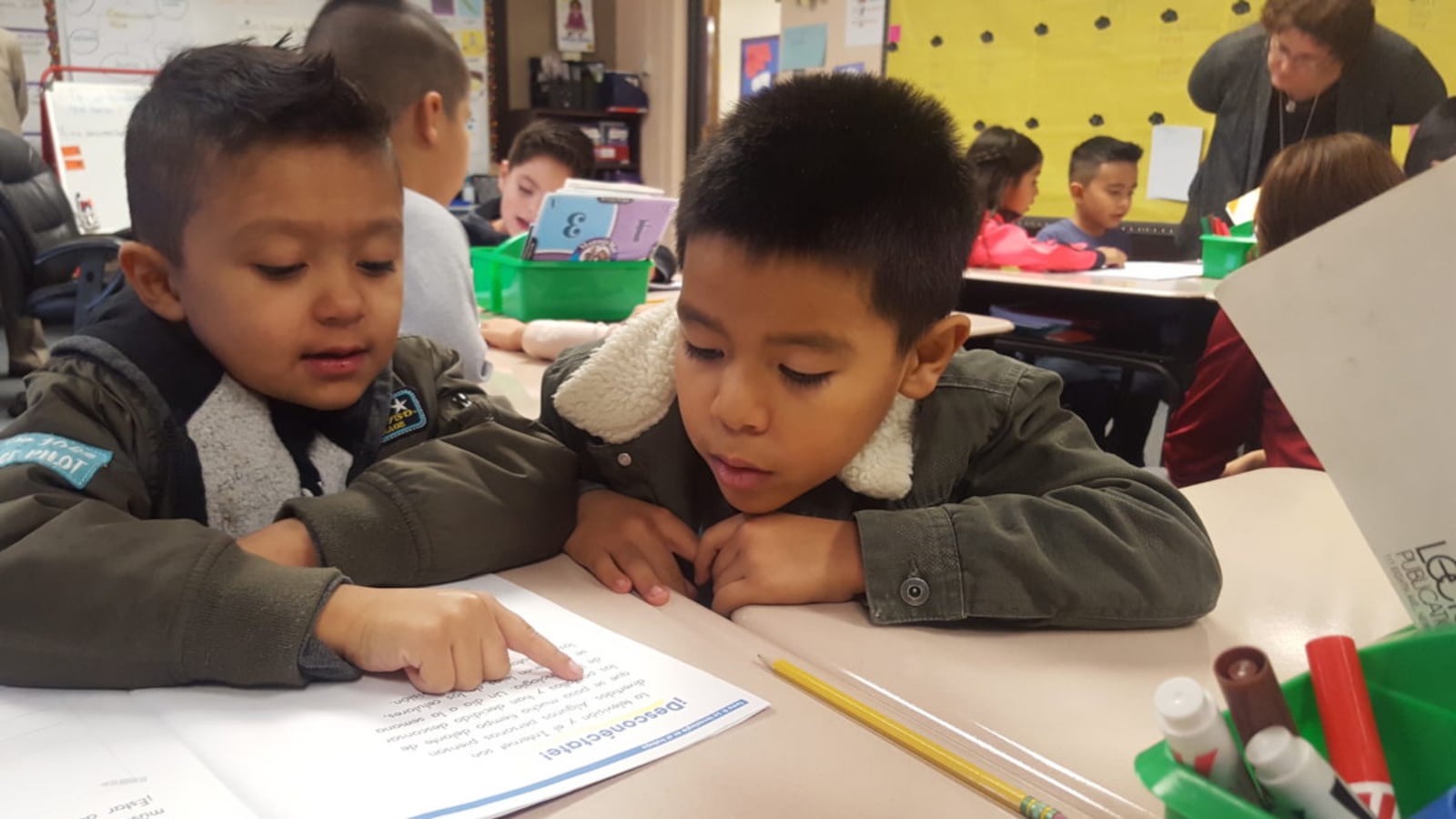After more than a year of contentious debate about its biliteracy program, the Adams 14 school board has ordered its superintendent to expand the popular instruction model.
The board apparently agreed to issue the order during a closed session last week although it never took a formal vote. On Tuesday, a week later, a group of organizations brought together by the teachers union announced that the district will allow the English-Spanish program at four schools to resume growing.
A district spokesman later confirmed the order, but declined to elaborate.
“The parents that worked very hard on this are grateful that the board made the right decision and we look forward to cooperating with teachers, principals and the administration to make it happen,” Laura Martinez, a leader of the organizations, was quoted saying in the announcement.
Adams 14, a district of about 7,500 students with the state’s highest proportion of English-language learners, had started a biliteracy program before the current superintendent was hired two years ago.
Classes had expanded to kindergarten through third grade. The district was following a program created by researchers from the University of Colorado Boulder, which was also providing teacher training for the classrooms.
Then last year, Superintendent Javier Abrego said he would not renew the partnership with the university and that the district would “pause” the program’s rollout to fourth grade while the district evaluated its effectiveness. University professors, researchers, advocates, and parents said data showed improving results. But Abrego also cited a lack of qualified teachers as another reason for stopping the program.
Barb McDowell, the president of the teachers union, said she got a letter Friday from the district’s attorney informing her of the board decision to resume expanding the biliteracy program.
“It is huge,” McDowell said. “This is what our parents have been wanting.”
She said the teachers union alone did not create the proposal to expand the program, but that the group of organizations and parents had been working together for months. Parent groups were meeting with board members individually, she said.
The proposal, she said, requested that the district resume its original plans to allow the first four schools using the model to add biliteracy classes in the fourth grade this school year.
“They do currently have people who would be able and willing to teach,” McDowell said.
It’s not clear when the fourth-grade classes will begin, but the letter sent to McDowell states the board is expecting a “detailed plan” from the superintendent by Nov. 1.
Some have questioned the board’s use of an executive session to discuss the program.
“I think people would have probably liked to hear that discussion,” McDowell said. “Questions could have been asked.”
Executive sessions by law may cover only discussions on certain topics including personnel matters, real estate deals, negotiations, or legal advice. School boards also must generally vote in public even when a discussion is private.
Board member David Rolla said the board last week did not take a vote, but “reached a consensus” to give the superintendent a directive.
Rolla said the discussion was held in executive session because the board was asking for legal advice about whether it could give the directive.
The Adams 14 school board in the past year has struggled with managing Abrego. Some board members want to request more information from him about school matters, while others want to avoid micromanaging.
Community members also have alleged the district does not listen the public and tries to shut down criticism. The district also must explain to the state board of education next month why student achievement has failed to improve for eight years. Advocates have also argued that the biliteracy instruction was part of the state-approved improvement plan.


